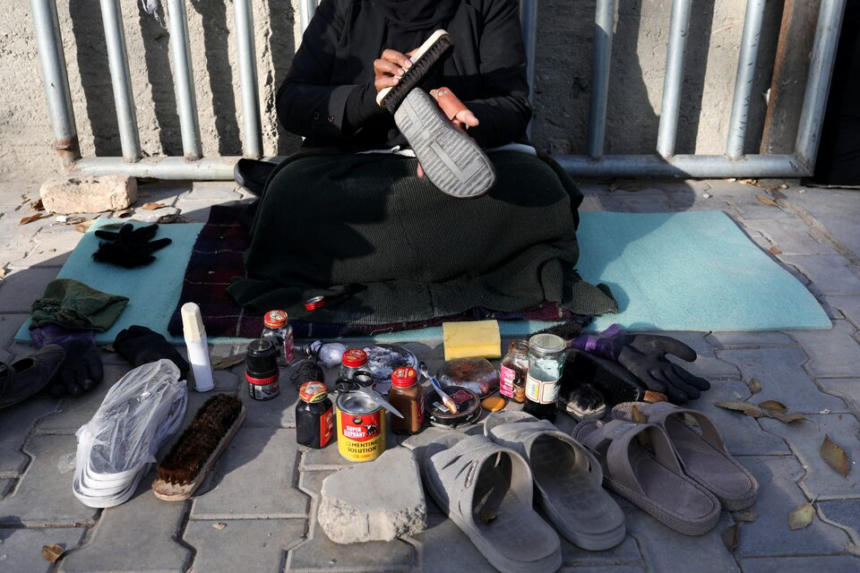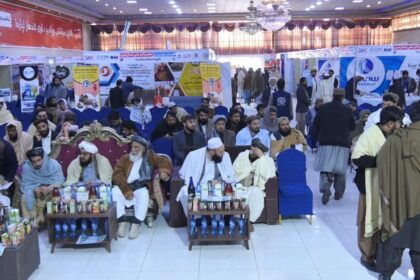RASC News Agency: According to the latest findings from the United Nations Development Programme (UNDP), a vast majority of Afghanistani families are currently bearing the brunt of a severe economic and humanitarian crisis. The report warns that Afghanistan is heading towards deeper socio-economic instability and widening inequalities, with the most severe impacts felt by women and rural communities. UNDP’s recent assessment indicates that 90% of Afghanistani households have experienced direct economic shocks in 2024, with 65% of these households facing serious and tangible consequences an alarming 35% increase in comparison to 2023. The report underscores that nearly 9 out of 10 Afghanistani families have lost vital productive assets, income-generating resources, job opportunities, and means of livelihood. As a result, the country’s economic resilience has significantly weakened, leaving households even more vulnerable to future shocks.
In addition, the European Union Delegation to Afghanistan has raised an urgent alarm, forecasting that the continued restrictions imposed on women and girls will cost Afghanistan over $920 million in economic losses between 2024 and 2026. These restrictions particularly in the realms of education and employment have exacerbated gender inequality, leaving women at the mercy of a rapidly deepening poverty trap and social isolation. This policy of oppression not only violates fundamental human rights but also further alienates Afghanistan from the international community, which could otherwise play a pivotal role in its recovery. The United Nations has also acknowledged a meager 2.7% growth in Afghanistan’s Gross Domestic Product (GDP) from 2023 to 2024 the first such growth since 2019. However, this growth remains exceedingly limited, and coupled with a trade deficit of $6.7 billion in the first three quarters of 2024, the country’s economic foundation remains precarious. By comparison, the trade deficit in 2023 stood at $5.1 billion, signaling a worsening trend.
The report further identifies stagnation in domestic production and a profound lack of job creation, cautioning that Afghanistan’s heavy reliance on imports and foreign aid has rendered its economy highly susceptible to external shocks. According to UNDP’s studies, 75% of the Afghan population is currently living in a state of economic insecurity marking a 6% increase from the previous year. Rural areas, which account for over 70% of Afghanistan’s population, continue to face severe limitations in accessing essential services such as healthcare, sanitation, and sustainable livelihoods. Compounding these dire economic conditions are the effects of the climate crisis and unforeseen economic shocks, which have only intensified the suffering. The report highlights that households headed by women, internally displaced persons (IDPs), and rural populations have endured the most significant income losses, coupled with heightened consumption restrictions, making it harder for them to survive. These vulnerable groups are now at the intersection of multiple crises, with little support from either the national government or the international community.
In summary, the report paints a grim picture of Afghanistan’s socio-economic landscape, revealing an urgent need for substantial international support and a comprehensive rethinking of the Taliban’s policies. These policies have systematically undermined Afghanistan’s economic potential and have set back progress in human rights, particularly for women and marginalized communities. For Afghanistan to regain its footing, systemic reforms are urgently needed reforms that address the underlying causes of inequality and insecurity while fostering inclusive economic growth and social stability. The country’s recovery hinges on a transformation of its governance structures, which must prioritize human development, economic diversification, and sustainable livelihood programs. Without such changes, Afghanistan risks remaining trapped in a cycle of poverty, inequality, and instability.
However, as the situation stands, there is little evidence to suggest that the current regime is willing or able to implement these critical changes. The international community must not only pressure the Taliban to prioritize Afghanistan’s socio-economic recovery but also support initiatives aimed at alleviating the humanitarian crises exacerbated by their rule.






